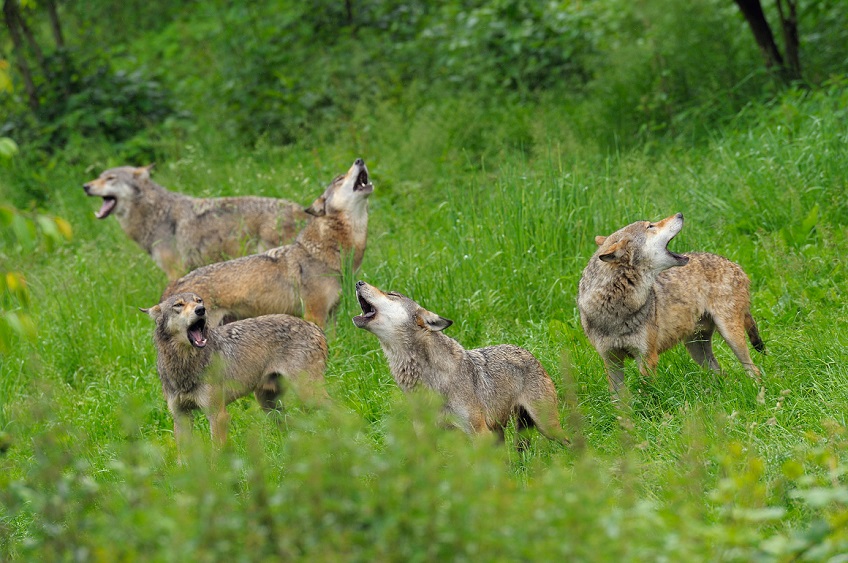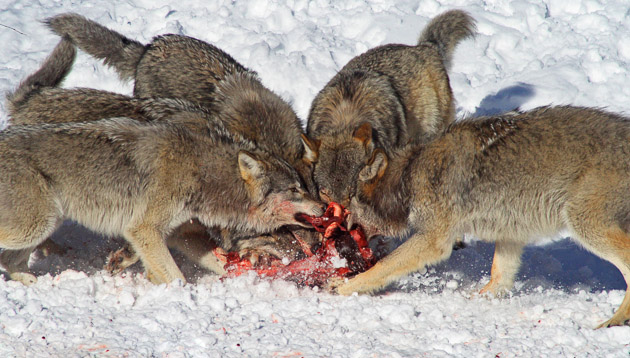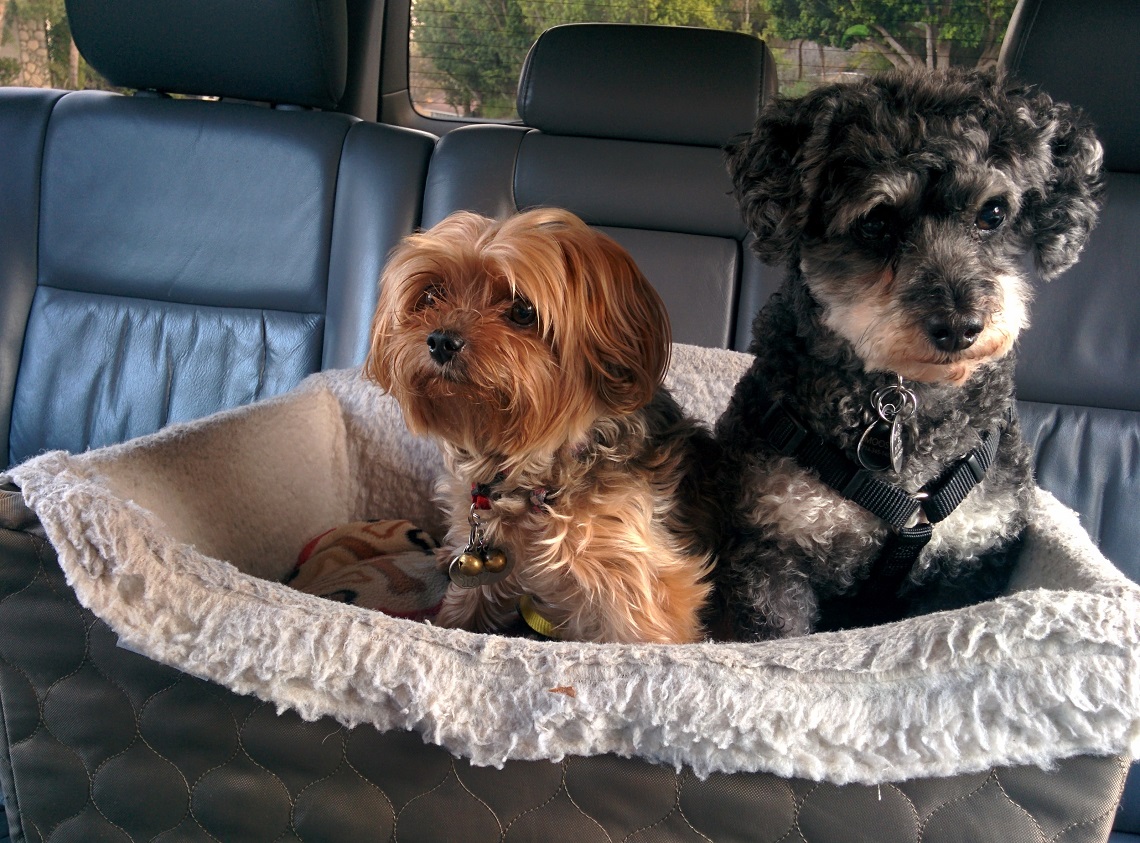
Are Dogs Pack Animals?
Here are all of the dog aggression equipment, collars, harnesses and pet products that we recommend
Check out our dog training Los Angeles and Southern California services or our phone and video consultations to get help from anywhere in the world!
(Updated 2020)
How many times have you heard that dogs are pack animals?
Misinformation such as this is propagated by autodidact reality television show hosts and “trainers” who don’t understand and are confused about pack animals and canine behavior. The term “pack animals” is used so often that most people don’t question it. It is ingrained in our social lexicon and used incorrectly.
Dog behavior is a science. Cultural fog is deep surrounding some notions such as dogs are pack animals, dominance aggression, you must be a dog’s alpha and dominance theory.
However, dogs are not pack animals, wolves, or carnivores, trying to be your Alpha, or attempting to dominate you. Start here for more information on how to train a dog and puppy without dominance, force, or being a dog’s alpha nonsense.
As opposed to most commercial dog boarding and training facilities we only offer one-on-one customized dog boot camp in los Angeles and boarding and training because dogs are not pack animals and instead learn and play best in dyads and in one-on-one scenarios.
Is Your Pet The Alpha Dog?
Let’s examine the evidence and see what science has to say. Veterinarian behaviorist, Dr. Ian Dunbar has called dogs “loose, transitory associations” rather than packs. However, family members are much more appropriate. Just as I wouldn’t call my son, daughter, or family member submissive/dominant to me any more than I would claim they are members of my pack. They are members of my family. Regardless of similar DNA, dogs are not wolves just as even though we share nearly identical DNA, humans are not bonobos or chimpanzees.
I will cover domesticated dogs, not wolves, wild canids, or free-ranging wild dogs, however, it is important to mention wolves because most antiquated theories about domesticated dogs are derived from people’s misguided connection between dog and wolf behavior. Families living with dogs do not constitute pack animals nor should they be treated that way. Contemporary Certified Dog Behaviorists, experts, professionals, and scientists refer to dogs as family members.
Differences Between Wild/Non-Captive Wolf Packs and Family Domesticated Dogs (Canis lupus familiaris)
There are many differences between wolves and dogs. Perhaps more differences than similarities. Listed below are some of the differences between wolves and dogs and why dogs are not pack animals, Alpha, and do not dominate people.
- Male wolves participate in the rearing of puppies. The pack must cooperate to provide enough resources for the offspring to survive and consequently, generally, only the mother and father pack members mate and have puppies.
- A dog sire does not participate in the rearing of puppies and dogs have a promiscuous mating system.
- For a wolf, hunting is the primary source of food acquisition.
- Dogs are primarily scavengers and foragers. Dogs are recommended to get their meals fed to them in these food extracting dog toys or if that’s not available, in maze dog bowls but not in a traditional type of dog bowl.

- Wolves hunt in coordinated, cooperative packs and are designed to take down prey much larger than themselves.
- Canis lupus familiaris, AKA domesticated dogs’ primary source of calories doesn’t come from hunting, they scavenge and forage for food individually and independently. Most dogs are selectively bred to be completely dependent on people and have been for millennia. Hence there has not been a need to hunt to survive (or even scavenge or forage) since the domestication of dogs. Chihuahuas, Yorkies, Golden Retrievers Oh My! And the vast majority of pet dogs are not preying on or killing anyone for food acquisition. The only thing dogs “take-down” is food off the kitchen countertop, so perhaps don’t let dogs in the kitchen.
Yes, some dogs are bred specifically for hunting with people, and may even retrieve, but even these dogs are not killing prey three times their size. In addition, dogs that would or actually could take down prey are the overwhelming minority. But in the United States and most of the Western world, dogs are not self-reliant and much of their survival mechanism has long been bred-out of their DNA. Many breeds can’t even procreate on their own without human intervention, nevertheless, hunt!
Most dogs are completely dependent upon humans. This is exactly what I explained in my interview with The New York Times – Wirecutter, why not to use an automatic pet feeder instead of hiring a competent pet sitter or a luxury dog boarding facility when going on vacation. Dogs are dependent upon people for survival and health. Dogs are not pack animals, wolves, carnivores, or self-sufficient hunting machines. Some people think that dogs are carnivores, however, they are not, dogs are omnivores, foragers, and scavengers but in most cases would die on their own or live much shorter lives.
- Wolves have large native roaming areas (76 Km), are autonomous, and have absolute freedom to manage their environment and social relationships.
- Dogs have been domesticated for tens of thousands of years, have (human) parents, are not autonomous, have limited free space, and roaming areas, and often do not choose their social relations and environment
- Pack animals have to fight off potential threats both environmental and/or predator and compete for mates.
- Domesticated dogs rarely ever have to fight off predators, or environmental threats, or compete for mates.
I don’t fight off anything
- Pack animals are born into their nuclear family, where the mother gave birth to her offspring.
- It goes without saying that humans do not give birth to or breastfeed their dogs. Our dogs are all adopted into our extended family.
- Wolves live in a pack of up to 42. Wolves are typically territorial and as David Mech states “may migrate hundreds of kilometers between where they raise their pups and where they take those pups in winter to follow their prey.” There is enormous variation in the wolves’ environment.
- Domesticated dogs clearly do not migrate these distances nor fit these migration patterns, and do not share these character traits.
- Pack animal’s offspring, when mature, will go off and create their own pack and wolves only live on an average of 5.94 years (MacNulty et al. 2009a)
- Dogs do not leave their human families after they reach maturity to go off and create their own. (That would suck) and even the largest dog breeds live far longer than that.
- Wolves in the wild generally don’t play with toys, with people or by themselves. Instead, they would prefer to play with and engage in pack animal activities with conspecifics. (OK, this is technically the 9th reason)
- Domesticated dogs are dyadic and play best in pairs of twos, not packs. Hence the reason most dog daycares and dog boarding kennels are fundamentally flawed. A dog’s health and species-specific optimal care are indirectly correlated with scalability and volume (aka packs).
What is optimal for a dog is not typically a profitable, scalable business model. Dogs have a plastic social phenotype that varies greatly based on the social environment. Also, pet dogs sure love people, and dog toys and even play by themselves at times. Your dog likely loves all types of dog toys. And if your dog isn’t interested in toys, here’s how to help your dog rekindle their love for toys. Especially food extracting toys. Rejoice, your dog will love toys again!
Dog’s Are Pack Animals Conclusion
Debunked. It is tempting to use terms and claims we hear on TV or from neighbors and interpret them as science, but the notion that domesticated family dogs are pack animals is not only incorrect but confers other vagaries as well. To draw an oversimplified generalization based on the misguided “wolf is a dog” notion, is archaic and as silly as it is to say a “chimpanzee is a human.”
People are not chimps and dogs are not wolves, alpha, or pack animals.
Here are all of the dog aggression equipment, collars, harnesses and pet products that we recommend



Does this apply to all breeds? Eg Saarloos wolfhound, Czechoslovakian wolf dog or even the German shepherd? Among the, “loose amorphous transitory associations with other dogs” with street dogs which can form quite large numbers – is there no hierarchy? Lastly, if it comes down to communication – do dogs communicate in the similar or not same mannerisms as wolves/pack Candida? i.e. even between two dogs – I’ve seen them say curl a lip to tell the other to go away / they’re too close for comfort, etc. so although they may not be behaving this way to fight off environmental threats/ gain access to resources such as a mate etc. – is it akin to “pack” behaviour?
Thanks for the info!
Hi Han, thanks for your questions and comment. Canids (and all animals) all share qualities, abilities, behavior, and sensory, emotional, cognitive, and biological (and in this case morphological) similarities however those don’t make them or classify them scientifically as pack animals.
It is important to remember that gatherings or formations of a large number of domesticated dogs do not make them pack animals.
Yes, all breeds and mongrels that are in the domesticated dog classification would not be considered pack animals even if they share a few or many of the behaviors (or other qualities/aspects) of pack animals.
I hope that helps and thanks for your comment, Russ
Interesting point of view. Street dogs clearly run in packs though so how would you categorize or explain that.
Thanks for your question Clifford. I’d love to take credit but it’s not my point of view. It’s how scientists define dogs vs. pack animals.
Natural selection plays a large part in a dog’s behavior. Street dogs, feral dogs, community dogs, free-ranging dogs, etc. are typically in less “developed” countries and are evolutionarily and genetically different than domesticated bred dogs in the United States.
There are many types of canids on the scale of domestication with atavistic traits. However not so much with canis lupus familiaris, (aka Rover)
However even variations of street dogs or community dogs, scientifically we wouldn’t say they run in “packs”. Instead, they are classified as loose amorphous transitory associations with other dogs. There is no social order and they aren’t defined as pack animals.
Thanks for the article. Siberian Huskies tend to converse (howl, imitate, scream) more than other breeds like german shepards. Is that a pack animal trait? do some dog breeds have pack animal traits for communicating?
Thanks for your comment and great question. There are many aspects, qualities, traits and behaviors that pack animals display. I’m sure we could cherry-pick pack animal behavior from most species however even then it would not make those species pack animals or defined as such.